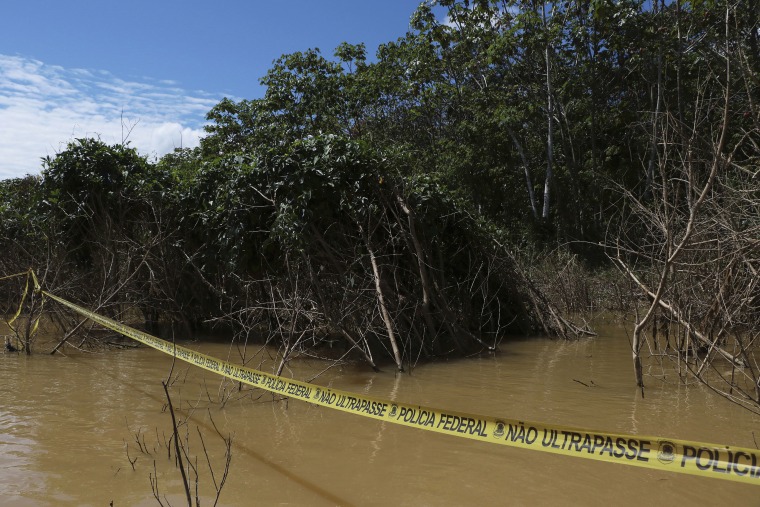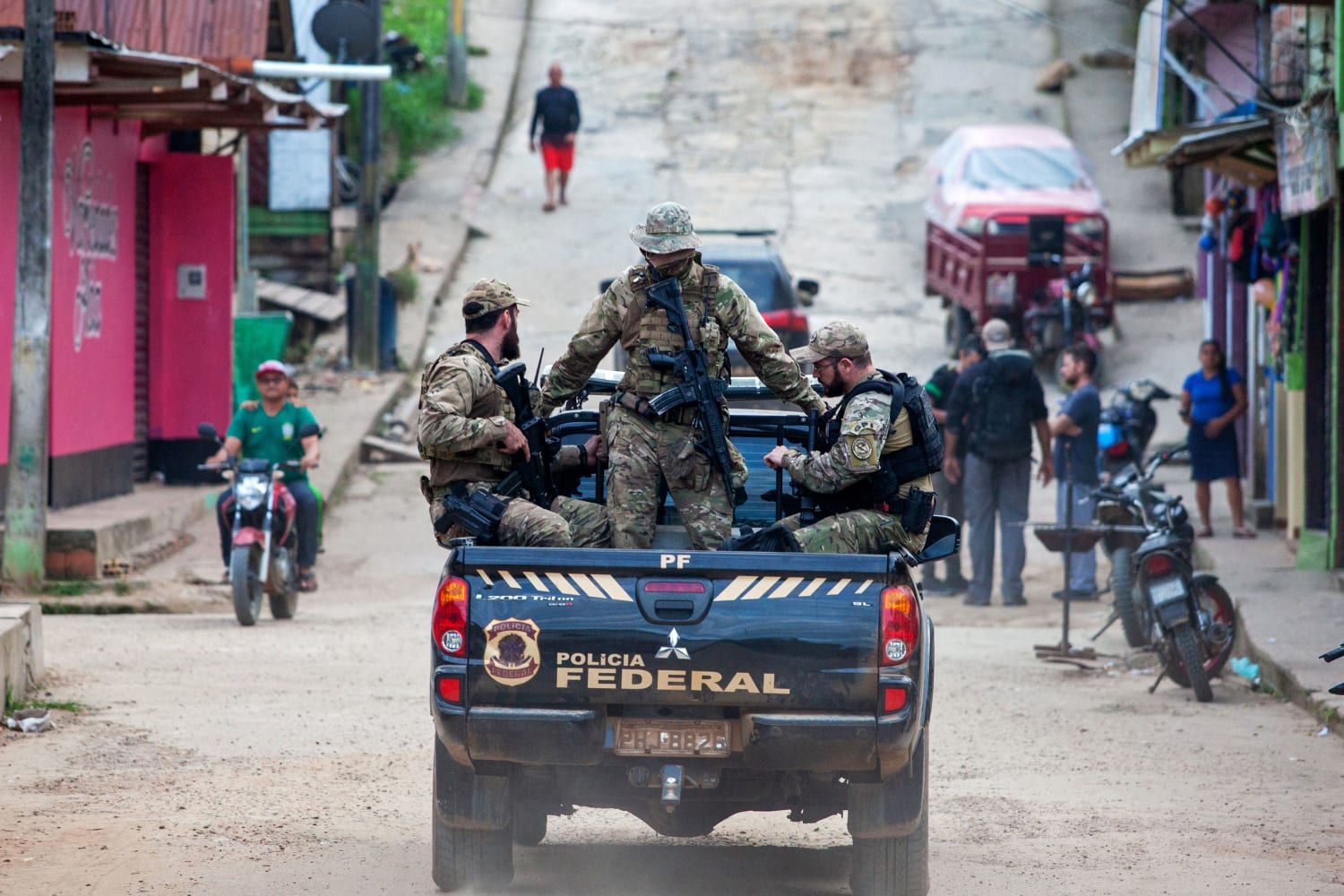Brazilian police have made a second arrest in the disappearance of a British reporter and an Indigenous expert in the Amazon jungle, while signaling a shift to a homicide probe 10 days after the pair went missing.
The police only identified the second suspect by his initials, “O.C.O,” in a statement on Tuesday, but Reuters and the Associated Press have named him as Oseney da Costa de Oliveira. He is a fisherman and brother of Amarildo da Costa de Oliveira, the first man arrested in the case and the only suspect so far, the news agencies said.
Police officials also indicated their focus had moved from a search-and-rescue operation to a murder investigation. Alex Perez, a police investigator, told reporters that Oseney da Costa de Oliveira did not resist arrest “on suspicion of homicide,” Reuters reported.
In the statement, federal police also said they seized firearm cartridges and an oar. They did not elaborate on why those items were seized and whether they belonged to the brothers.
British journalist Dom Phillips, 57, and Brazilian Indigenous people’s expert Bruno Pereira, 41, were last seen on June 5 near the entrance of the Javari Valley Indigenous Territory, which borders Peru and Colombia.

The news of the second arrest caps off a tumultuous few days for the men’s families, as hope dwindles that they may be found alive and anger grows at the Brazilian government’s response.
Their disappearance prompted a global outcry, with activists and environmentalists urging Brazilian President Jair Bolsonaro to do more to help find the two men. Bolsonaro said last week that the pair “were on an adventure that is not recommended” and speculated they could have been executed, according to Reuters. On Tuesday, protesters in the capital Brasilia walked to demand justice and answers for Phillips and Pereira.
Phillips’ family told British media on Monday that they were told the bodies of the two men had been found, but Brazil’s federal police quickly rejected those reports, leaving the families facing more uncertainty.
The Brazilian embassy in London confirmed to NBC News in an email Tuesday that it has been in contact with Dom Phillips’ family, at their request, but would not comment on what was said. NBC News has also asked the British Foreign Office for a statement but has not received a response.
NBC News has also reached out to Phillips’ family and friends.
The Guardian, where Phillips has been a longtime contributor, reported late Tuesday that the Brazilian ambassador to the U.K. apologised to Phillips’ family for incorrectly telling them that the bodies of the two men have been found.
According to the newspaper, ambassador Fred Arruda told the family that the embassy was “misled” by information it had received from “investigating officials.” He added that the search operation will go on, “with no efforts being spared.”
But a spokesman for indigenous group Univaja, which has been searching around the clock for the missing, said the search for Phillips and Pereira was nearing the end as the area left to search kept shrinking, Reuters reported.
On Sunday, search teams looking for the two men found a backpack, laptop and other personal items belonging to them submerged in a river.
Search teams have been focusing their efforts around a spot in the Itaquai river, near the city of Atalaia do Norte, where volunteers from the Matis Indigenous group say on Saturday they found a tarp from the boat used by the missing men.
Last week, police also reported finding traces of blood in Amarildo da Costa de Oliveira’s boat. He has previously denied any wrongdoing and claims police tortured him to try to get a confession, his family told the Associated Press.
The area in which the pair was travelling has seen violent conflicts between fishermen, poachers and government agents. Violence has grown as drug trafficking gangs battle for control of waterways to ship cocaine, although the Itaquai is not a known drug trafficking route.
Authorities have said a main line of the police investigation into the disappearance has pointed to an international network that pays poor fishermen to fish illegally in the Javari Valley reserve, which is Brazil’s second-largest Indigenous territory.
Caroline Radnofsky and Kurt Chirbas contributed.
Source: | This article originally belongs to Nbcnews.com









